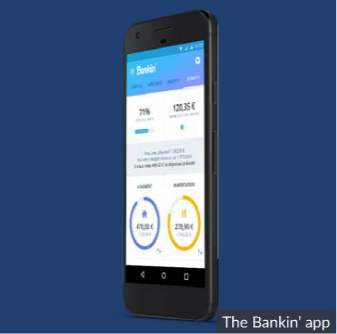The digital transformation of the global economy offers significant opportunities to drive growth for the betterment of both financial institutions and consumers. Thierry Mennesson, partner at Oliver Wyman, details the journey that retail banks will have to pursue to establish themselves as leaders in an increasingly competitive space
Our banking transactions and everyday spending are proxies of our lives. They offer insight into our lifestyles, areas of interest, saving capacity and spending habits. Above all, they link customers to the healthcare, automotive, travel, leisure, food, and services sectors.

Access deeper industry intelligence
Experience unmatched clarity with a single platform that combines unique data, AI, and human expertise.
Anyone familiar with their own financial transactions, with insights offered from their financial advisors, can gain a better understanding of who they are as a consumer, and therefore live their more consciously and better informed.
Historically a monopoly of banks, the payments field has recently attracted the interest of the digital giants. They aim to establish themselves as competitive alternatives to retail banks, accessing transaction data without being confined to industry regulation and proper banking-licence capital requirements.
With the European Regulatory Authority having this year issued a new directive, the Payment Services Directive Two (PSD2), which separates account-keeping from access to accounts and initiation of payment, the near-monopoly enjoyed by banks on account management applications and means of payment will, necessarily, be toppled.
As a result, we will be able to use applications provided by independent players beyond our banks to manage our accounts or hold cards. An environment this attractive will not go unexploited for long. New intermediaries will emerge, offering assistance on all aspects of everyday life: so-called ‘life coaches’.

US Tariffs are shifting - will you react or anticipate?
Don’t let policy changes catch you off guard. Stay proactive with real-time data and expert analysis.
By GlobalDataCapable of advising us to spend more intelligently, these coaches will also be able to help us save money or pay back loans, ferret out unnecessary subscriptions, predict our end-of-month balance, anticipate needs, issue alerts, provide support, and be our ‘useful’ partners in the day-to-day.

The future life coach
Intuitively, banks appear to be in a good position to serve the function of life coach, having access to information about our spending.
However, their success lies in their ability to rethink their mission and carve out a place for themselves in day-to-day assistance using digital. With digital, banks will need to move from a ‘moments in life’ to a ‘day-to-day’ mindset, and instead of pushing products, they will need to coach customers in their daily lives.
Should they shift their mindset in this direction, they will reach a position at the centre of their customers’ ecosystem. Other players have their own assets to boost, and their own interests in taking position as a life coach: insurance providers, telecom players, distributors, startups and big tech companies like GAFA (Google, Amazon, Facebook, Apple) or BATX (Baidu, Alibaba, Tencent Xiaomi). And now, the European regulator is offering them, with PSD2, the ideal doorway into this day-to-day world.
Seeing this opportunity, the competition between Account Information Service Providers (AISP) and Payment Initiation Service Providers PISP is already in full swing. These are the initiatives at the forefront of the rise of the life coach:
• Yolt, the ING’s coach in the UK was launched to capture relationships with UK banks’ customers, and plans to deploy its services in France and Italy;
• Insurer MAIF has released Nestor, a service specialised in personal and family financing;
• Crédit Mutuel Arkéa has started MAX, intended to provide a simple, impartial and efficient response to consumers’ everyday needs, and
• Independent AISPs and PISPs such as Tink in the Nordics, Fintonic in Spain, Bankin’ and Linxo in France, or Numbrs in Germany are following the same path.
The next 18 months will see a merciless battle between the proponents of traditional banking, focused on account management, savings and loans, and apprentice life coaches.
They will offer financial services for the post- PSD2 and GDPR era, focused on helping customers manage their day-to-day lives. What is more, as this field is not regulated at national level, there is very good reason to believe a European player will emerge and be able to make its mark. It should, however, do this at speed, before digital giants play in this field too.







